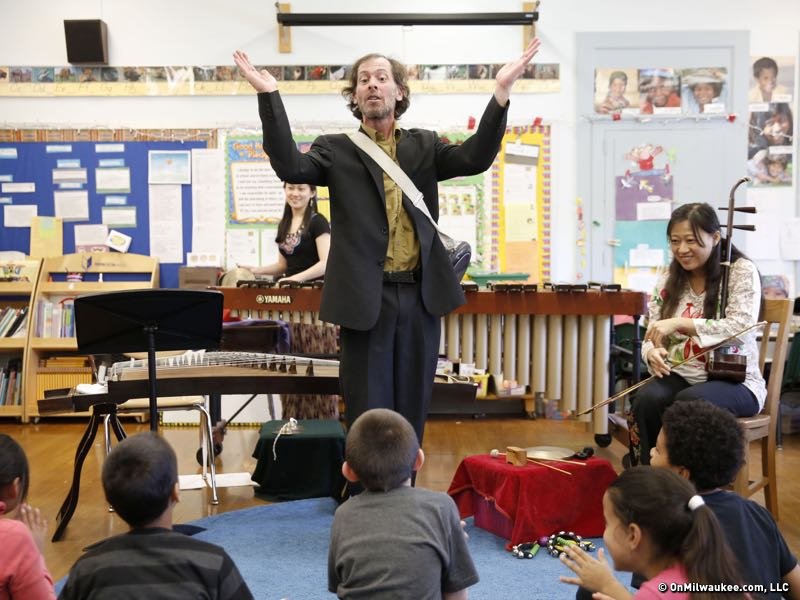Although there is no proof that kids who listen to classical music are smarter, it's certainly possible that exposure to classical music inspires the imagination, promotes creative expression like singing or dancing and fosters a lifelong appreciation for a variety of music types.
This weekend, as part of the MSO’s family programming series, the symphony performs the music to scenes from Disney's original "Fantasia" and "Fantasia 2000."
The shows are on Friday, Oct. 14 and Saturday, Oct. 15 at 8 p.m. and on Sunday at 2:30 p.m. Tickets are available here.
Special activities for kids take place prior to the Sunday matinee show. including an instrument "petting zoo" and composer, conductor and craft stations.
Karli Larsen is the director of education and community engagement for the Milwaukee Symphony Orchestra and through numerous programs reaches 40,000 kids and families every year.
"Multiple generations have an attachment to Fantasia," says Larsen. "I was introduced to the movie by my parents and fell in love with it and now I get to hear and see it with my son."
Programs include field trip concerts for primary education students that are geared toward children.
"They are quite different then a traditional concert," says Larsen. "The concerts are shorter, sometimes they are narrated or the conductor talks more and there are visuals."
Another program, Arts in Community Education (ACE), is the MSO’s flagship program in its 27th season. It offers students from kindergarten through middle school in 23 different schools the chance to experience many different types of performances, from the symphony to Tuvan throat singers.
"It’s a unique program for the MSO because it’s not just a music program," says Larsen. "It brings all kinds of musicians and artists and dancers – cultural treasures from around the city – for students to enjoy."
Yaniv Dinur will conduct "Fantasia" this weekend and although he finds the music of symphonies geared toward children like "Fantasia," "Carnival of Animals" and "Peter and the Wolf" to be great pieces of music, he believes kids should be exposed to all composers.
"Almost anything can be explained and presented to kids – from Bach to Mahler," says Dinur.
Kids are unaware of the notion that classical music is pretentious or boring – they learn this from adults who believe it. Generally, all kids like to dance and clap to sounds, regardless of the genre.
Adults can learn from this. Some believe that, without knowing about the history of classical music, they can't enjoy it. Or they on some level expect that listening to classical music will make you more intelligent and therefore it falls into the category of eating vegetables or exercising – something you might not necessarily enjoy at the time, but should do because it's good for you.
"These days attention spans of not only children but adults are very short," says Dinur. "Everything moves so quickly in this world because of technology. Songs on the radio are two or three minutes. Classical music requires more focus, patience and concentration – all of which are important to develop at an early age because they will positively affect other areas of a person’s life."
Molly Snyder started writing and publishing her work at the age 10, when her community newspaper printed her poem, "The Unicorn.” Since then, she's expanded beyond the subject of mythical creatures and written in many different mediums but, nearest and dearest to her heart, thousands of articles for OnMilwaukee.
Molly is a regular contributor to FOX6 News and numerous radio stations as well as the co-host of "Dandelions: A Podcast For Women.” She's received five Milwaukee Press Club Awards, served as the Pfister Narrator and is the Wisconsin State Fair’s Celebrity Cream Puff Eating Champion of 2019.







